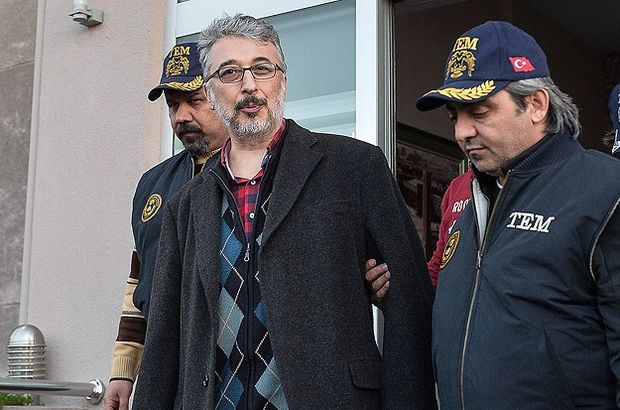Turkey’s Supreme Court of Appeals has upheld prison sentences handed down in 2018 to 20 of 28 defendants, former executives of the Scientific and Technological Research Council of Turkey (TUBİTAK) and the now-closed Presidency of Telecommunication and Communication (TİB) in a political and military espionage case, local media reported on Wednesday.
The defendants were given prison sentences varying between 10 years, six months and 44 years, three months on espionage and terrorism charges by the Ankara 2nd High Criminal Court on Feb. 22, 2018.
According to Turkish media reports, the 3rd Criminal Chamber of the court upheld sentences of 37 years, six months handed down to 15 defendants in the case, including former TİB vice president Osman Nihat Şen and former TUBİTAK vice president Hasan Palaz, on charges of “membership in an armed terrorist organization” and “political and military espionage.”
The court also approved a prison sentence of 44 years, three months given to former TİB official Ali Osman Tekin on charges that include, in addition to terrorism and espionage, “destroying and deleting data in an information system.”
A sentence of 10 years, six months handed down to defendants Ahmet Boyalı, Mehmet Akgedik, Hidayet Gençer and Nur Muhammet Arınç on charges of “membership in an armed terrorist organization” was also approved by the court.
According to the ruling, the espionage took place by way of crypto mobile phones developed by TUBİTAK in 2011 and made available to senior government officials in December 2012. It said those involved in the production of the phones shared their IMEI numbers and encryption keys with TİB personnel, allowing them to wiretap phone calls made by government officials.
Among those whose phones were wiretapped were the then-prime minister and current President Recep Tayyip Erdoğan, National Intelligence Organization (MİT) Undersecretary Hakan Fidan, former head of the Constitutional Court Haşim Kılıç, former Chief of Staff Gen. Necdet Özel and several ministers, the Ankara court’s reasoned decision had previously said.
The top court also stated in its ruling that obtaining information for the purpose of espionage was sufficient for the commission of a crime even if it was not shared with another country, adding that wiretapping activities also took place between Sept. 16 and Dec. 31, 2013, with a reference to the December 17-25 bribery and corruption investigations that shook the country a decade ago.
The probe implicated, among others, the family members of four cabinet ministers as well as the children of then-prime minister Erdoğan.
The Dec. 17-25 investigations led to the resignation of four Cabinet ministers, to which Erdoğan responded by claiming that the corruption scandal was fabricated by sympathizers of the Gülen movement within the police department with the aim of overthrowing his government.
Hundreds of police officers and members of the judiciary were detained and some arrested for alleged illegal activity in the course of the corruption investigations.
The terror charges in the case were also in reference to the faith-based Gülen movement, inspired by the teachings and activism of Muslim cleric Fethullah Gülen.
The Turkish government accuses the Gülen movement of masterminding a coup attempt on July 15, 2016 and labels it a “terrorist organization,” although the movement strongly denies involvement in the coup attempt or any terrorist activity.
Following the failed coup, the Turkish government declared a state of emergency and carried out a massive purge of state institutions under the pretext of an anti-coup fight. More than 130,000 public servants, including 4,156 judges and prosecutors, as well as 29,444 members of the armed forces were summarily removed from their jobs for alleged membership in or relationships with “terrorist organizations” by emergency decree-laws subject to neither judicial nor parliamentary scrutiny.
A total of 319,587 people have been detained and 99,962 arrested in operations against supporters of the Gülen movement since the coup attempt, Turkey’s Interior Minister Süleyman Soylu said in November.
In addition to the thousands who were jailed, scores of other Gülen movement followers had to flee Turkey to avoid the government crackdown.

